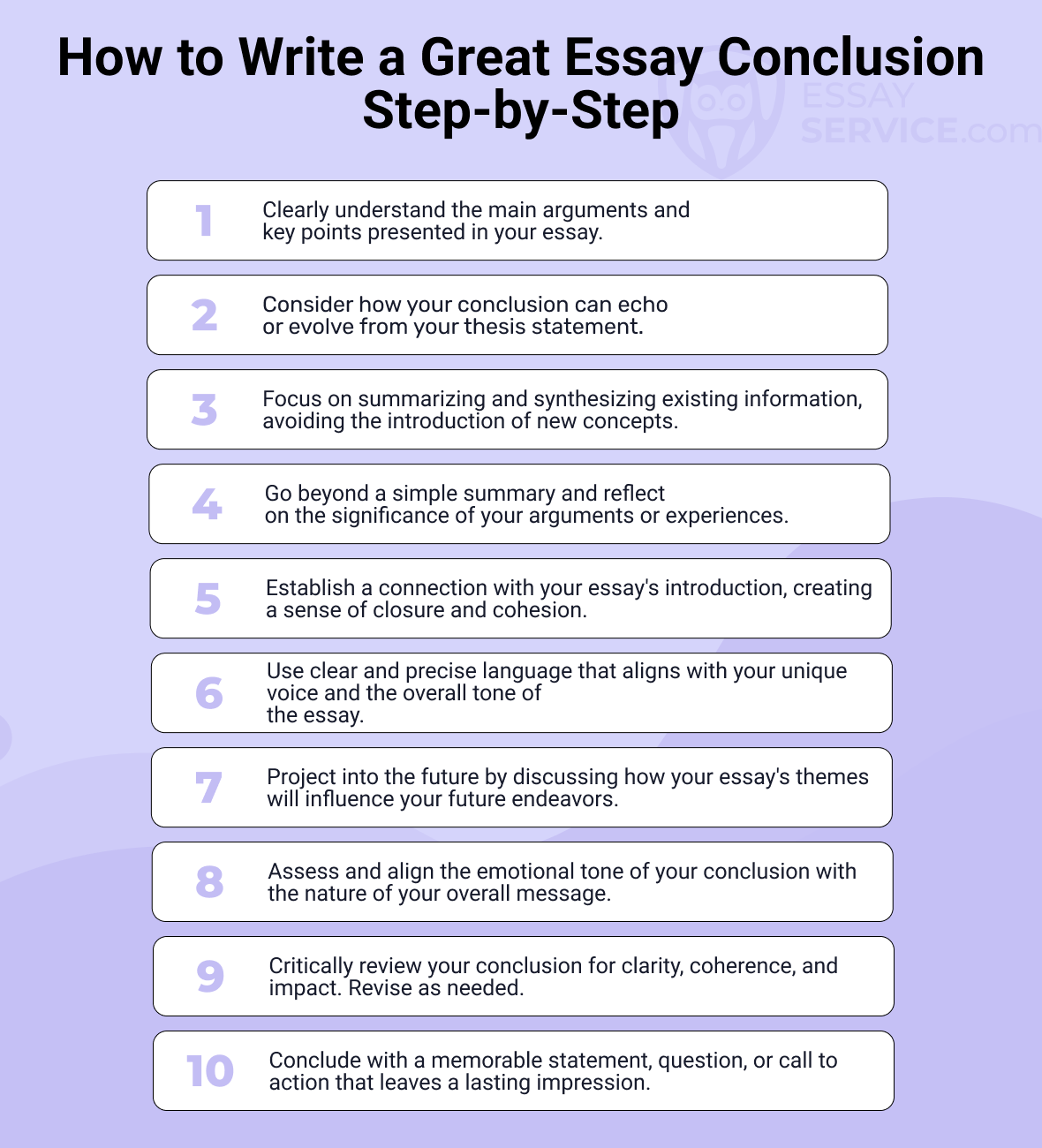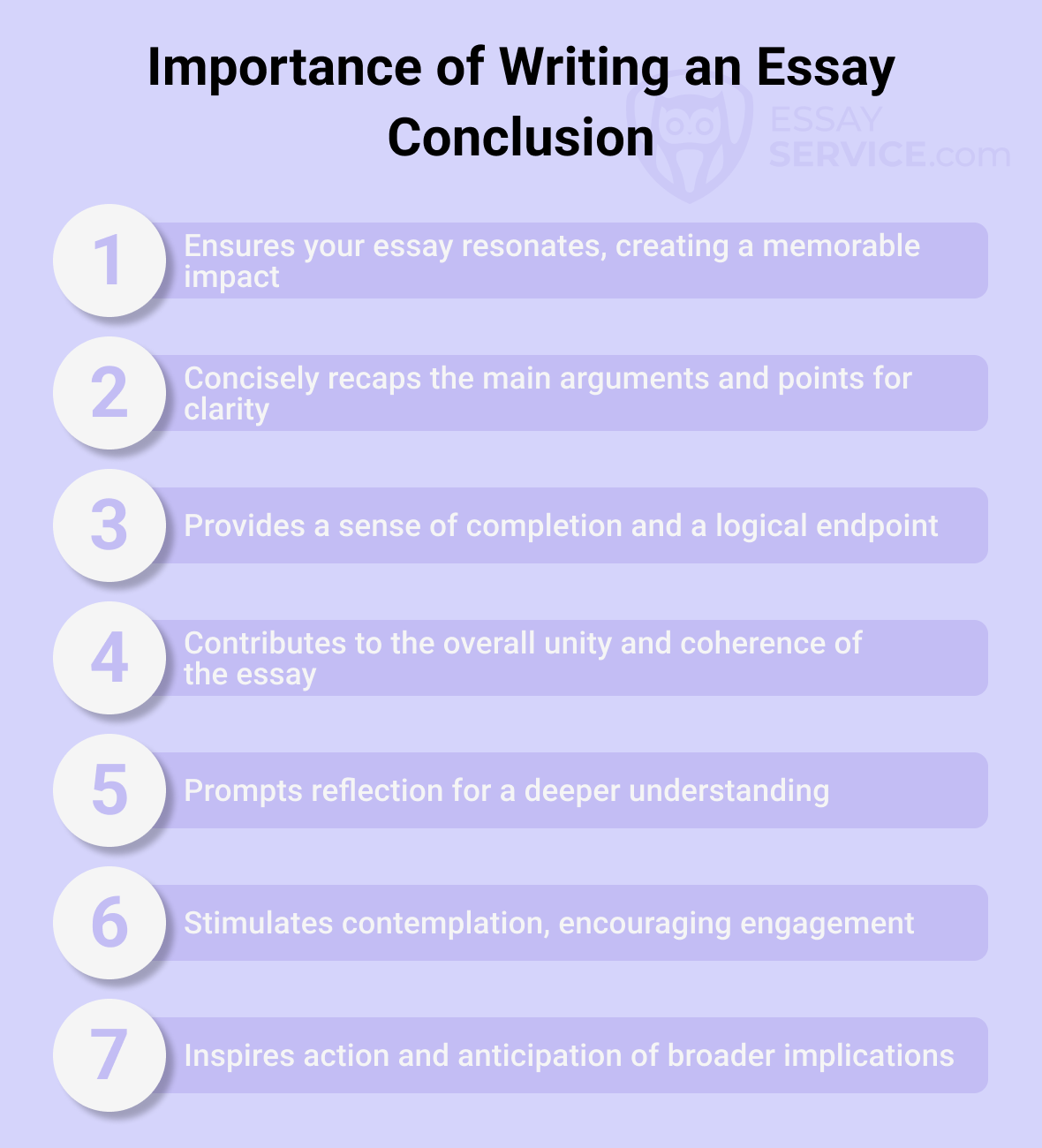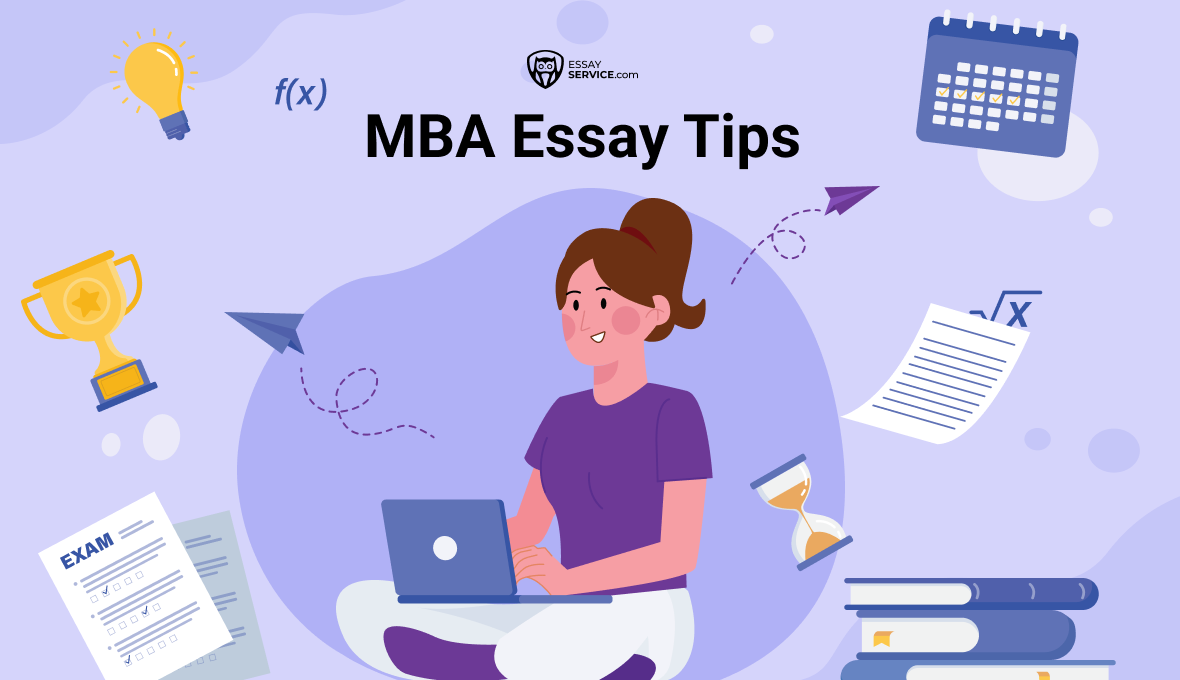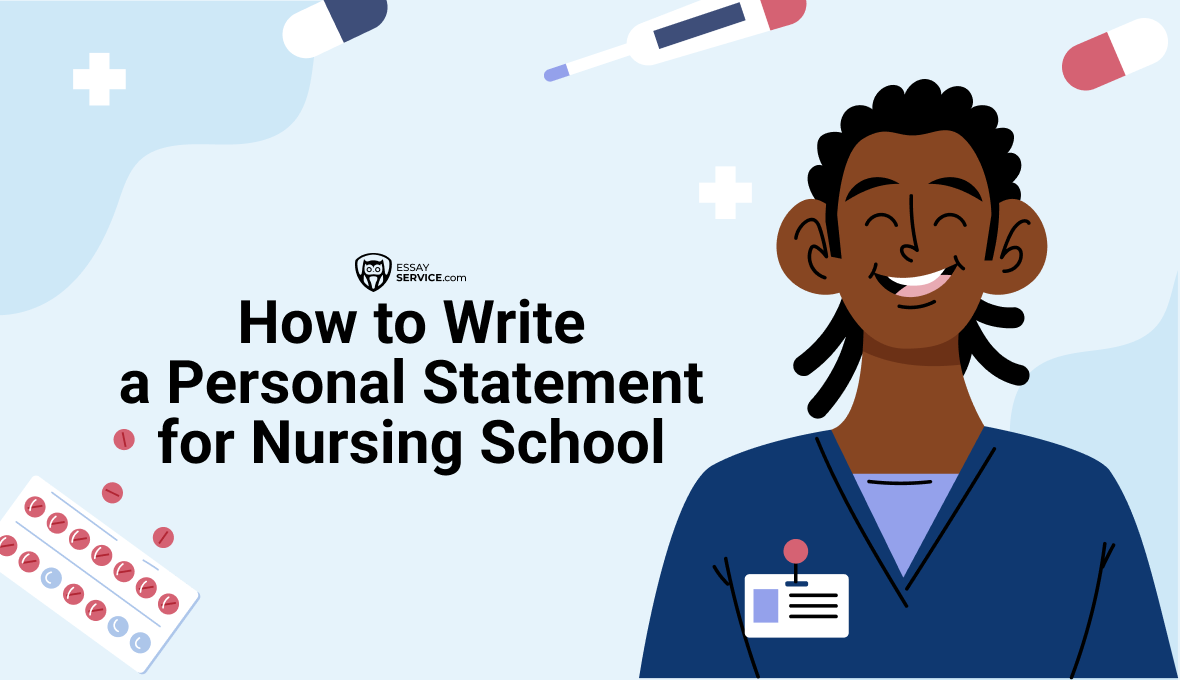
How to End a College Essay, Leaving Your Readers Wanting More
Writing a compelling college essay is no small feat, and as you approach the finish line, the importance of a strong conclusion cannot be overstated. The concluding paragraphs of your essay leave a lasting impression on your reader, shaping their final thoughts and judgments. In this guide, we will explore proven strategies and effective techniques to teach you how to conclude a college essay, ensuring that it ends on a powerful note that resonates with your audience.
How to End Your College Essay?
As you weave through the narrative, building the layers of your experiences and insights, it is crucial to approach the conclusion with the same level of thoughtfulness. The ending of your college essay is not merely a summation but a golden opportunity to leave a lasting impact on your reader, solidifying the themes and messages you've carefully presented throughout your writing.
In the final paragraphs, consider revisiting the essence of your introduction. Echoing a theme or idea mentioned at the beginning of your essay can create a sense of symmetry and coherence. This circular narrative structure can be a powerful way to show growth or transformation, allowing your audience to witness the full arc of your personal or academic journey.
However, it’s crucial to know how to end a college essay that transcends mere recapitulation. It offers an opportunity to expand beyond the confines of your individual story. Connect your experiences to broader themes, societal issues, or universal truths. This broader perspective not only elevates your ending but also emphasizes the relevance and significance of your personal narrative in a larger context.
Ultimately, your ending should linger in the reader's mind. Whether it's a profound reflection, a thought-provoking question, or a call to action, aim to leave your audience with something to ponder. If you don’t feel confident enough to write such an impactful ending or need a full text ready by the morning, use our college essay writing service.

how to conclude a college essay
1. Lessons Learned
Concluding an essay with a "lessons learned" approach involves reflecting on the experiences or insights gained throughout the narrative. This technique allows you to not only summarize your journey but also emphasize personal growth or transformation. It will leave the reader with a sense of closure and a deeper understanding of the significance of your writing.
For example, if your essay revolves around overcoming a significant challenge, your conclusion could highlight the valuable lessons extracted from that experience. You might express how resilience and determination became guiding principles in your life. Consider a closing statement like, "In facing adversity, I discovered the strength within me, learning that challenges are not roadblocks but opportunities for growth."
Similarly, if your narrative explores academic pursuits, the college essay ending can emphasize the insights gained from your educational journey. You might conclude with a reflection on the broader importance of knowledge and intellectual curiosity, stating something like, "Through my academic endeavors, I've learned that true wisdom lies not only in what we know but in our perpetual pursuit of understanding, and it is this pursuit that fuels my passion for lifelong learning."
Strive for a balance between reflection and forward-looking statements. Express gratitude for the experiences that taught you valuable lessons, and consider projecting how these lessons will shape your future endeavors. Whether personal or academic, the lessons-learned approach provides your audience with a feeling of the enduring impact of your narrative.
2. Action-Packed Ending
Finishing an essay with an action-packed ending involves leaving the audience with a sense of movement, closure, or a call to action. Rather than simply summarizing key points, this approach to a college essay ending aims to energize the conclusion and leave a lasting impression. It's about propelling your narrative forward, creating a sense of momentum or anticipation.
For instance, if your essay is centered around a personal journey, you could conclude with a decisive statement about your next steps. An example might be, "Armed with the lessons from my past, I eagerly step into the unknown, ready to embrace new challenges and redefine my future." This action-packed ending infuses the ending with a sense of forward motion, inviting the reader to envision your continued journey.
In an academic essay, you might conclude with a call to action or a suggestion for further exploration. For example, "As we navigate the complexities of the topic, it's imperative that we continue this dialogue. Let's collectively strive for innovative solutions and collaborative efforts, ensuring a brighter future for generations to come."
The key is to convey a sense of dynamism and purpose. Consider the broader implications of your narrative and how it can inspire action or provoke thought. An action-packed ending ensures that your essay doesn't merely conclude but resonates, leaving your reader with a sense of movement and a compelling invitation to engage with the ideas presented.
3. The Full Circle
A full-circle college essay ending involves revisiting a theme, idea, or image mentioned in the introduction, creating a sense of completion and unity within the narrative. This approach allows you to tie together the various threads of your essay and leave the audience with a satisfying and resonant conclusion.
For instance, if your essay begins with a vivid image or metaphor, you can bring it back in the ending to underscore the journey you've undertaken. If, for example, your introduction spoke of a butterfly emerging from a cocoon as a metaphor for personal growth, your ending might revisit this image, stating something like, "Just as the butterfly emerges transformed from its cocoon, so too have I emerged from these experiences with a newfound strength and resilience."
Alternatively, if your introduction posed a thought-provoking question, your conclusion can provide an answer or reflect on the question's broader implications. For instance, if your opening question was, "What does it mean to truly understand oneself?" your ending could offer an insightful response, such as, "Through this journey, I've discovered that understanding oneself is an ongoing process, an intricate dance between self-reflection and embracing the evolving facets of one's identity."
The full-circle ending approach reinforces the unity of your essay and provides a satisfying sense of closure. By returning to a familiar element from the introduction, you create a narration symmetry that resonates with readers and leaves them with a lasting impression of your essay.
4. Addressing the College
Concluding an essay by addressing the college implies directly connecting your narrative to your aspirations, goals, or expectations for your college experience. This method ensures that your ending is not just a reflection on the past but also a projection into the future, demonstrating to the audience how your experiences will influence your college journey.
Let’s analyze some college essay ending examples. If your paper revolves around a significant extracurricular activity, you could conclude by explaining how this experience has shaped your goals for college. You might say, "As I eagerly anticipate the next chapter of my academic journey, I am determined to bring the same dedication and passion that fueled my involvement in my college community. I look forward to contributing my unique perspective and embracing new opportunities for growth."
Similarly, if your essay discusses a transformative academic experience, your ending can address how this will impact your approach to learning in college. You could state, "This journey has fortified my commitment to intellectual exploration. As I step into the college environment, I am excited to engage with diverse perspectives, delve into challenging coursework, and continue the pursuit of knowledge that has become an integral part of my identity."
This approach provides a forward-looking perspective, emphasizing the continuity between your past experiences and your aspirations for the future. By explicitly connecting your narrative to your college endeavors, you create a conclusion that not only reflects on your personal growth but also anticipates the contributions you hope to make in your college community.
5. A Glance into the Future
Concluding an essay by glancing into the future suggests projecting forward, offering insights into how your experiences will shape your future endeavors. This method encourages the reader to consider the lasting impact of your narrative and how it will continue to unfold in the time to come.
For instance, if your essay delves into personal growth or overcoming challenges, your ending might express aspirations for continued self-improvement. You could say, "As I look ahead, I am committed to building upon the resilience and determination that have defined this journey. I envision a future where challenges are not obstacles but stepping stones to further growth and achievement."
Alternatively, if your essay revolves around academic achievements or pursuits, your ending can provide a glimpse into your future academic ambitions. You might say, "The knowledge and skills acquired during this chapter of my academic journey lay the foundation for my future pursuits. I eagerly anticipate contributing to groundbreaking research and fostering a lifelong love for learning in the academic community."
Such college essay conclusions create a forward-looking perspective, ensuring that your essay's conclusion is not just a reflection on the past but a projection of your aspirations. By offering a preview of the impact your experiences will have on your future, you leave the reader with a sense of anticipation and a deeper understanding of the enduring significance of your narrative.
6. Avoiding Cliches and Generic Conclusions
Ending a scholarly paper without resorting to clichés and generic conclusions involves thinking beyond overused phrases and crafting an ending that feels fresh and genuine. Instead of relying on commonplace expressions, consider a personalized reflection or a thought-provoking statement that encapsulates the essence of your essay.
For instance, if your essay revolves around the theme of self-discovery, avoid the cliché of saying, "In conclusion, I discovered who I truly am." Instead, you might offer a more vivid and specific insight, such as, "Unraveling the layers of my identity revealed a tapestry of strengths and vulnerabilities, each thread contributing to a more nuanced understanding of myself."
Similarly, if your essay explores a transformative experience, steer clear of generic statements like, "This experience changed my life." Instead, you could convey a more distinctive sentiment, such as, "The challenges of academia not only reshaped my perspective but catalyzed a metamorphosis, leaving me poised for a future defined by resilience and newfound purpose."
By avoiding clichés and generic conclusions, you allow your unique voice to shine through. If your essay centers around a specific passion or interest, resist using trite phrases like "Follow your dreams." Instead, consider a more authentic expression like, "Fueling my passion for writing propels me toward a future where the genuine fire drives every pursuit within."
End a college essay without clichés, expressing your thoughts in a way that feels personal and true to your individual narrative. This approach ensures that your essay concludes with authenticity, leaving a lasting impression on the reader.

Avoid These Three College Essay Endings
Here are the most common pitfalls you should steer clear of when composing a college essay conclusion. Instead, create an ending that resonates with your authenticity and leaves a lasting impression on the audience. By avoiding summarization, clichéd quotes, and expressions of neediness, your conclusion can stand out as a thoughtful and genuine reflection of your personal narrative.
The summary snare
- A common pitfall in college essay endings is falling into the summary snare. Reiterating the main points of your essay without offering new insights can leave your conclusion feeling flat and redundant.
- Instead of summarizing what your reader has just read, aim to provide a thoughtful reflection on the broader implications of your narrative or a glimpse into the lessons learned and their application in the future.
The famous quote trap
- While incorporating quotes into your essay can be impactful, relying on a famous quote as the central element of your conclusion can be a clichéd choice. Overused quotes often lack the personal touch needed to conclude a unique narrative effectively.
- Instead of borrowing someone else's words, end your college essay with your authentic voice, leaving the reader with an original and memorable takeaway that encapsulates your individual journey.
The needy student triteness
- Concluding an essay by explicitly stating your desire to be accepted or expressing a need for the college's resources can come across as insincere or manipulative. Colleges seek authentic and self-aware individuals who can contribute meaningfully to their community.
- Rather than portraying yourself as a "needy student," focus on showcasing your strengths, unique qualities, and the positive impact you can make on campus, ensuring your conclusion reflects confidence and self-assurance.
Best Tips on How to Conclude a College Essay
Here are some of the best tips for writing a college essay conclusion that is impactful and memorable:

- Reflect on your journey: Use the conclusion to reflect on the journey you've undertaken throughout your essay. Highlight the key moments, experiences, or insights that have shaped your narrative and contributed to your growth or development.
- Offer a thoughtful insight: Instead of simply summarizing your main points, aim to provide a thoughtful insight or reflection that adds depth to your essay. Consider the broader implications of your narrative and how it connects to larger themes or ideas.
- Avoid clichés: Steer clear of clichéd phrases or generic conclusions that lack originality. Instead, strive to end your essay with a fresh perspective or a unique perspective that captures the essence of your narrative.
- Leave room for interpretation: Consider ending your essay with an open-ended statement or question that encourages further thought or exploration. This allows the reader to engage with your ideas on a deeper level and leaves a lasting impression.
- Connect to your future: Use the conclusion to connect your narrative to your future aspirations or goals. Discuss how the experiences or lessons you've shared will influence your future endeavors, whether in college or beyond.
- Evoke emotion: Consider incorporating an emotional element into your conclusion. Whether it's a poignant reflection, a powerful image, or an evocative metaphor, appealing to the reader's emotions can create a memorable and resonant ending. Connecting on an emotional level ensures that your essay lingers in the audience's mind.
- Offer a glimpse into your personality: Use the conclusion as an opportunity to showcase your personality. Your essay is not just a compilation of achievements and experiences; it's a representation of who you are. Let your unique voice shine through in the ending, allowing the reader to connect with you on a personal level.
- Consider the tone: Adjusting the writing tone with the overall spirit of your essay. Whether your narrative is reflective, optimistic, or contemplative, the conclusion should maintain consistency. A seamless transition in tone enhances the cohesiveness of your essay and provides a satisfying reading experience for your audience.
- End with confidence: Conclude your essay with confidence and conviction, reaffirming the significance of your narrative and the impact it has had on you. Leave the reader with a sense of closure and a clear understanding of the message you've conveyed.
Final Consideration
Incorporating these tips into your writing can pave the way for your academic success. By following our guidelines, you'll not only enhance the quality of your work but also foster a deeper connection with your readers. Reflecting on your journey, offering thoughtful insights, and avoiding the previously mentioned stumbling blocks will set your paper apart. Remember, your unique voice, coupled with an emotional touch and a forward-looking perspective, can leave a lasting impression. Embrace these tips to end a college essay, and you'll undoubtedly set yourself on the path of a successful and impactful writer.
Frequently asked questions
New posts to your inbox!
Your submission has been received!
.png)


.webp)